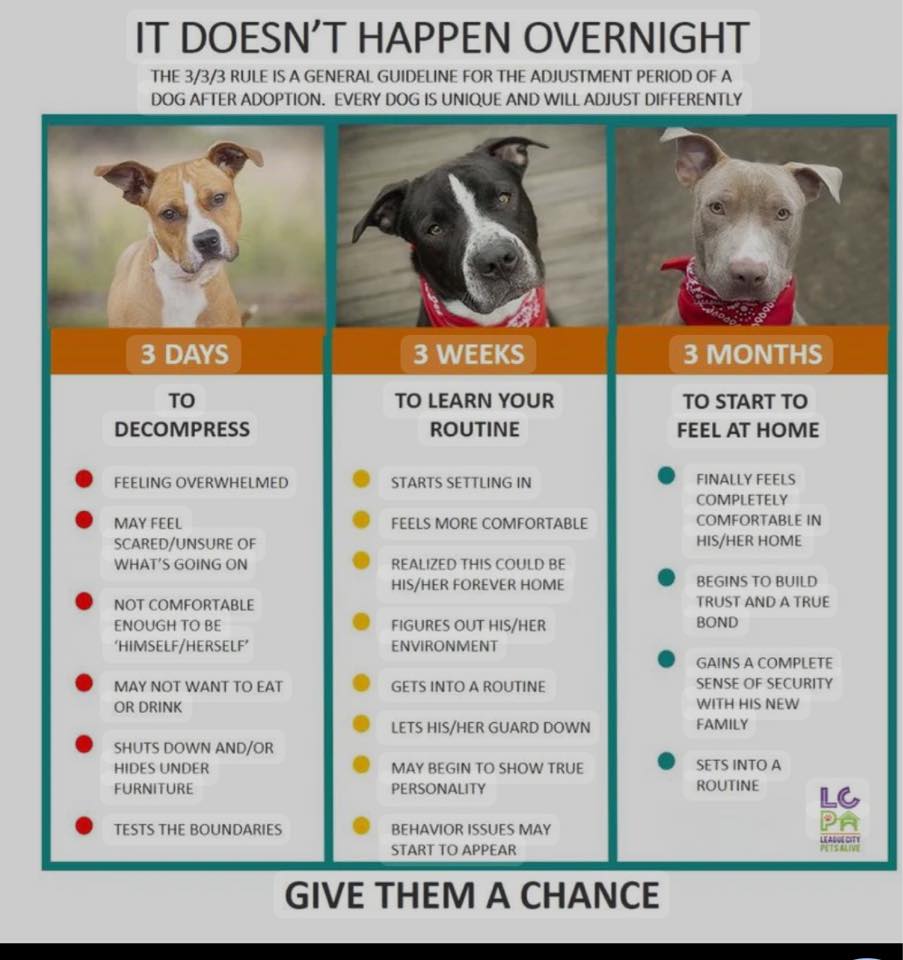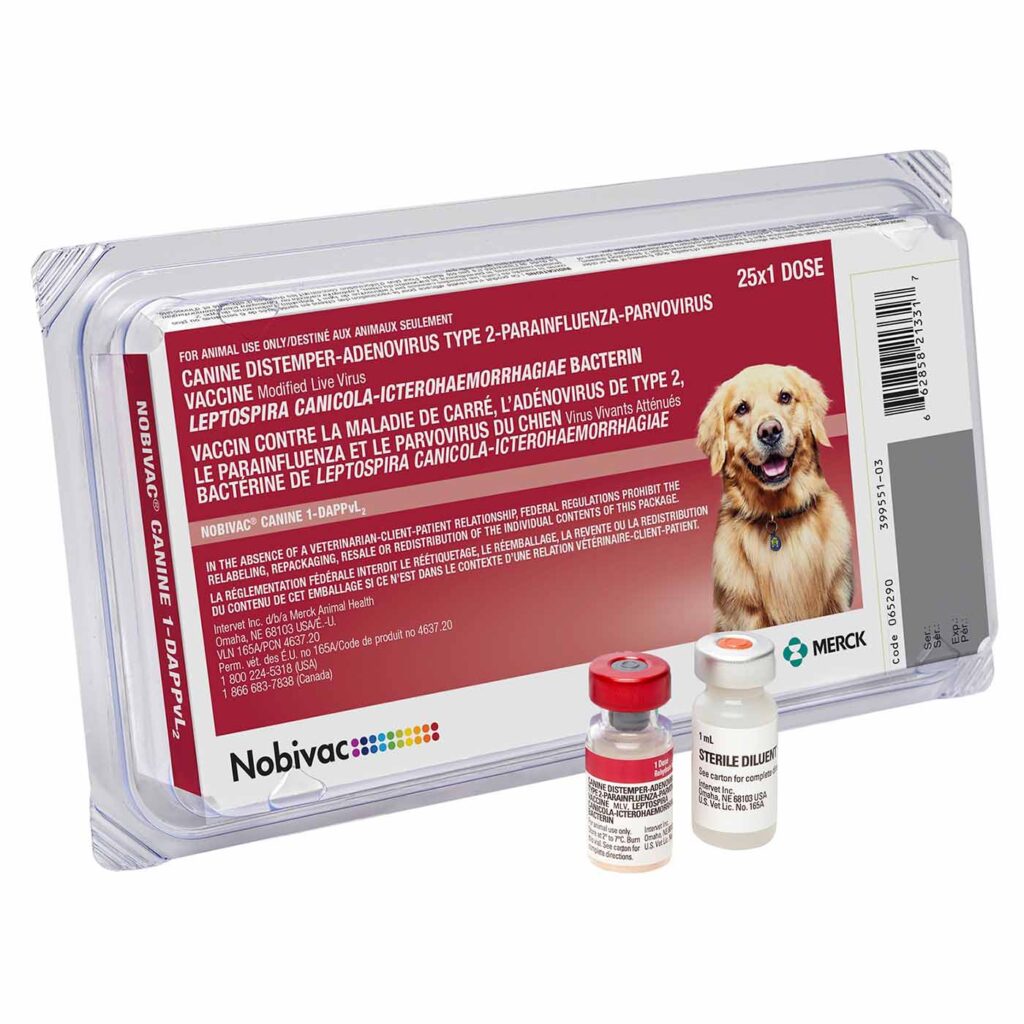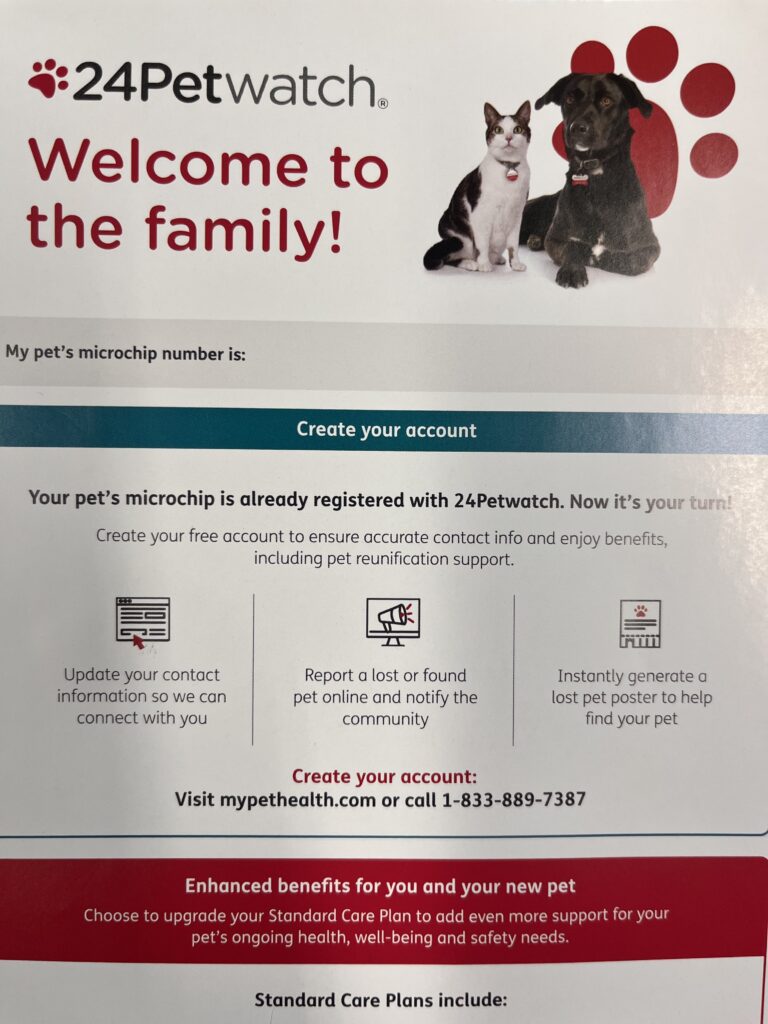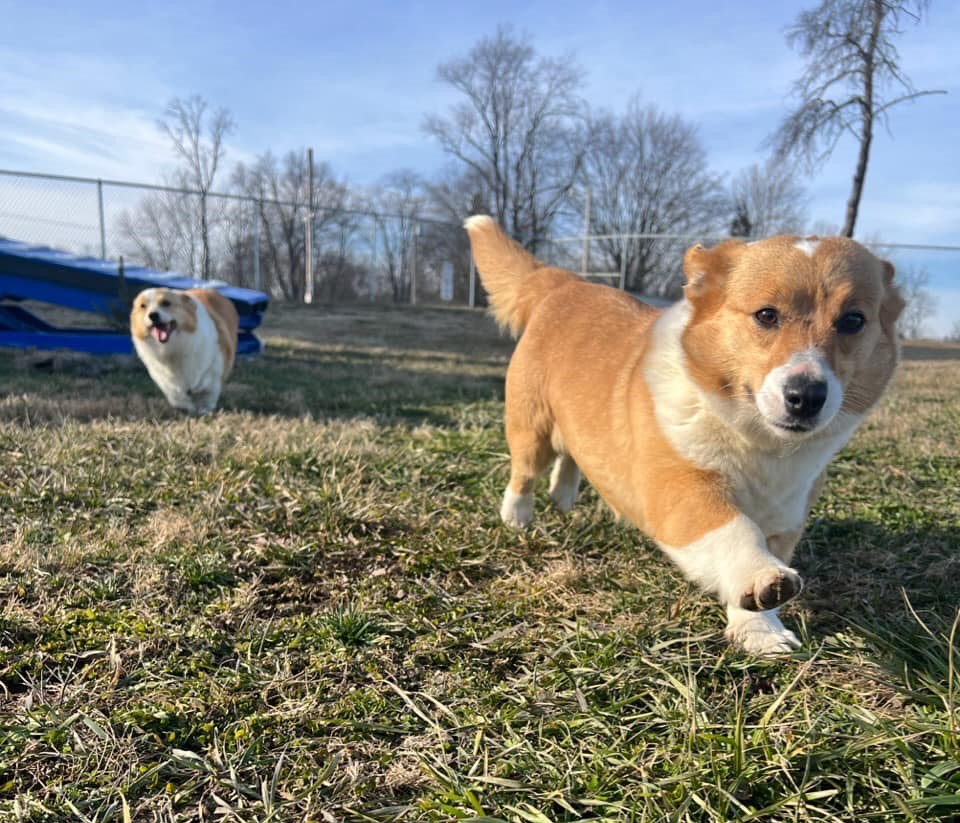Getting your new family member to adapt to his or her new home can be one of the biggest challenges for both the new owner and the dog. Please review the following information to help you and your family adjust to having someone new in the house. We strive to find wonderful homes for our dogs but also want to keep both the people and dogs safe. You can also find additional resources to help create a smooth adoption transition below.

Helpful Links
Vaccine Info

Microchip Registration

Free Training to Adopters

Food
At the shelter your new dog did not receive a special brand or type of food, unless they showed symptoms of a possible food allergy or the food they were receiving was not agreeing with their stomachs. All our food is donated from Wal-Mart and other local stores. When we receive the food it is all mixed together. When you adopt a dog, you will be informed of any special food requirements.
Food Allergy: Try to find a grain free food that your dog will like. There are plenty of grain free foods available.
Regular Food: If your dog does not eat the food you purchased don’t worry. Some dogs are like some humans..just picky eaters. Please be sure to read the serving sizes relating to your dog so that he or she can maintain a healthy weight. Although giving your dog an endless bowl of food sounds like the best thing to do, it has been proven to be unhealthy.
House Training
As much as we would like to tell you that your new family member is house trained the reality is that they are probably not. However dogs are very intelligent and can learn much later in life if they need to. Below are some links that you may find helpful in the training process! Good luck and don’t give up!
Senior Care
Unfortunately senior dogs make there way into the shelter and just like the others they get a chance at a better life. Senior dogs may require special care and need to have an adopter that can respect the dogs age and health. Many times senior dogs make the best pets. If you adopted a senior dog the links below are designed to help you provide the best home possible for that dog.

